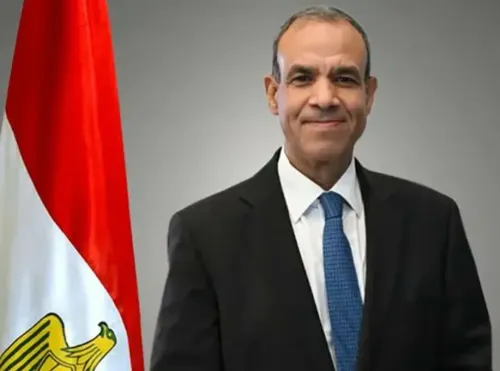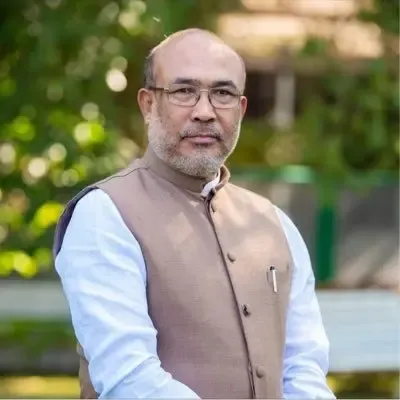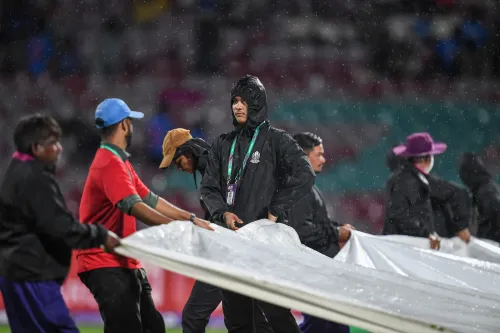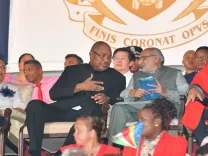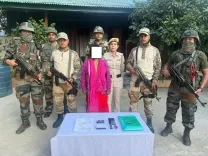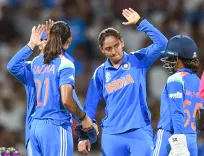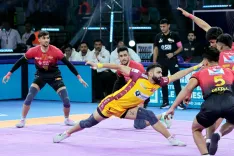Is India Prioritizing Development While Pakistan Disrupts It?
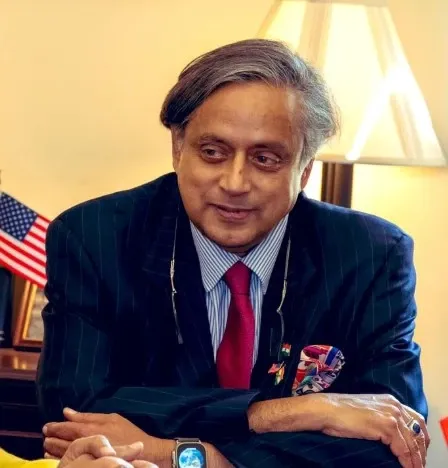
Synopsis
Key Takeaways
- India prioritizes development over conflict.
- Pakistan's terrorism as a disruptive force.
- International leaders show support for India's stance.
- Dialogue with Pakistan remains complicated.
- The delegation showcases bipartisan unity against terrorism.
Washington, June 6 (NationPress) India is prioritizing development and not engaging in conflict, while Pakistan seeks to disrupt this progress through terrorism, as emphasized by the Indian parliamentary delegation led by Shashi Tharoor during their tour across the Americas.
This development-focused message resonated with leaders from all visited nations, shifting discussions from terrorism to economic growth and collaboration, Tharoor noted at a think tank meeting.
“There is a significant interest in India, confidence that we are on the right path, and recognition that we handle the terrorism issue with restraint and responsibility,” Tharoor remarked. “Overall, it seems we are on the correct course.”
He also conveyed a clear message that if Pakistan attempts to strike India through terrorism to derail its development agenda, “We will respond decisively. We will retaliate with full force.”
Tharoor added, “The nuclear threat suggested by the Pakistanis is unfounded, as evidenced by the limited scale of Operation Sindoor, which fell far short of any nuclear implications.”
Tejasvi Surya stated that India and the United States are united in their fight against terrorism, which impacts both nations.
He cited India's successful Operation Sindoor that neutralized Jaish-e-Mohamed leader Abdul Rauf Azhar, responsible for the tragic kidnapping and beheading of US journalist Daniel Pearl. “When India takes action against terrorists, we are also serving the interests of the United States,” Surya asserted.
Shashank Mani Tripathi highlighted the significance of democracy in uniting nations with shared values to collectively oppose terrorism.
The delegation impressed many with the functioning of India’s democracy, showcasing bipartisan support for this crucial mission.
While there was unanimous support for India’s zero tolerance policy towards terrorism and an understanding of the rationale behind Operation Sindoor, questions arose about the lack of dialogue with Pakistan, Tharoor noted.
He clarified that dialogue is impossible under the threat of attacks.
“Sometimes, with good intentions, people propose dialogue,” he explained. “We are open to discussions in any language Pakistan prefers, but they choose the language of force, which necessitates our response.”
“Once we clarify that there is no equivalence between terrorists and their victims, or between a state that shelters terror and one that endures repeated attacks, there is full consensus with India’s position,” he added.
“No one has disagreed, in fact, they all said they 'fully understand and agree with you'.”
The Tharoor-led delegation is concluding their journey across the Americas, advocating for a united front against terrorism in the United States, Guyana, Colombia, and Panama.
The team comprises members from various political backgrounds, including Shambhavi from the Lok Janshakti Party, Sarfaraz Ahmad from the Jharkhand Mukti Morcha, Milind Murli Deora from Shiv Sena, Bhubaneswar Kalita from the BJP, and GM Harish Balayogi from the Telugu Desam Party, a partner in the National Democratic Alliance.
During two days of extensive diplomacy in the United States, they engaged with Vice President JD Vance, members of Congress, media representatives, and the diaspora.

